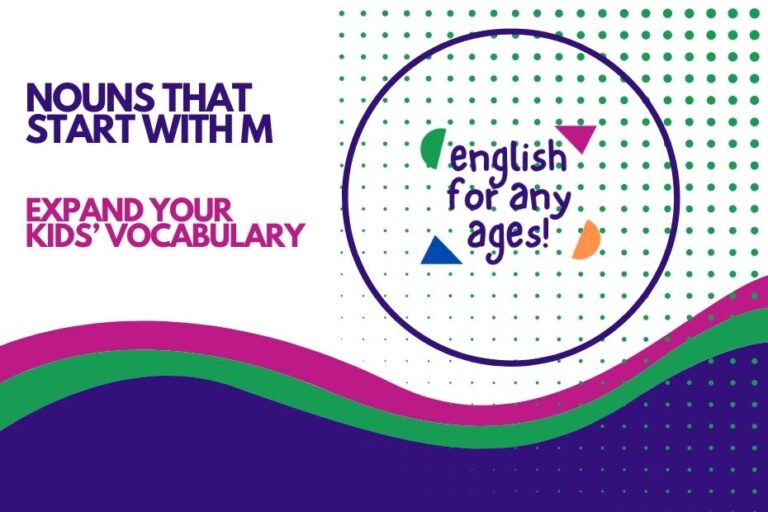Mastering “Cluck”: A Comprehensive Guide to Usage
Understanding how to use the word “cluck” correctly is essential for both native English speakers and learners. “Cluck” appears in various contexts, from describing the sounds animals make to expressing certain human emotions.
This article aims to provide a detailed exploration of “cluck,” covering its definitions, structural uses, types, usage rules, common mistakes, and advanced applications. Whether you are a student, writer, or language enthusiast, this comprehensive guide will enhance your understanding and usage of “cluck” in different situations.
By mastering “cluck,” you will be able to describe animal sounds accurately, add depth to your writing, and communicate more effectively in everyday conversations. This article provides numerous examples, tables, and practice exercises to solidify your understanding of the word “cluck” and its diverse applications.
Dive in and discover the nuances of this versatile word!
Table of Contents
- Introduction
- Definition of “Cluck”
- Structural Breakdown
- Types and Categories of “Cluck”
- Examples of “Cluck” in Sentences
- Usage Rules
- Common Mistakes
- Practice Exercises
- Advanced Topics
- FAQ
- Conclusion
Definition of “Cluck”
The word “cluck” primarily functions as both a verb and a noun, referring to the characteristic sound made by a hen. This sound is typically a short, guttural noise.
However, the word’s usage extends beyond the avian world to describe similar sounds or expressions made by humans, usually connoting disapproval, concern, or gentle scolding.
As a verb, “cluck” signifies the act of producing this sound. For example, “The hen clucked softly to her chicks.” As a noun, “cluck” refers to the sound itself. For example, “I heard a cluck from the chicken coop.” The word originates from imitative language, directly mimicking the sound it represents.
Classification and Function
- Part of Speech: Verb (intransitive) and Noun
- Function: To describe the sound made by a hen or a similar sound made by a human.
- Contexts: Agricultural, zoological, colloquial, and descriptive writing.
The primary function of “cluck” is to convey a specific auditory experience. In animal contexts, it describes a natural sound of a bird.
In human contexts, it’s often used figuratively to express mild annoyance or concern.
Structural Breakdown
Understanding the structural use of “cluck” involves recognizing its verb forms and noun variations. As a regular verb, it follows standard English conjugation rules.
As a noun, it can be used in both singular and plural forms.
Verb Forms
- Base Form: cluck
- Past Simple: clucked
- Past Participle: clucked
- Present Participle/Gerund: clucking
- Third-person Singular Present: clucks
The verb “cluck” typically functions as an intransitive verb, meaning it doesn’t take a direct object. However, it can be followed by adverbs or prepositional phrases to provide additional context. For example, “The hen clucked angrily” or “The hen clucked at the fox.”
Noun Forms
- Singular: cluck
- Plural: clucks
As a noun, “cluck” can be used as a subject, object, or complement within a sentence. For instance, “The cluck was a warning” (subject) or “I heard a cluck” (object). The plural form, “clucks,” indicates multiple instances of the sound.
Types and Categories of “Cluck”
While “cluck” fundamentally describes a specific sound, its usage can be categorized based on the context and intention behind the sound. These categories help understand the nuanced ways the word can be employed.
Animal Sound
This is the most literal and common usage, referring to the sound made by a hen. It often signifies communication between hens or with their chicks.
Human Expression
In human contexts, “cluck” is used figuratively to describe a sound or expression of disapproval, concern, or gentle scolding. This usage is often considered informal or colloquial.
Onomatopoeia
“Cluck” falls under the category of onomatopoeia, words that imitate the sounds they describe. This characteristic makes it a vivid and descriptive term.
Figurative Language
The term can be used figuratively to describe similar sounds or vocalizations that resemble a hen’s clucking, even if they are not made by a hen or intended to mimic it directly. This often adds a humorous or descriptive element to writing.
Examples of “Cluck” in Sentences
To fully understand the usage of “cluck,” let’s explore various examples categorized by their context. These examples will illustrate how “cluck” functions as both a verb and a noun in different situations.
Examples: “Cluck” as a Verb (Animal Sound)
The following table provides examples of “cluck” used as a verb to describe the sound made by a hen. Each sentence illustrates a slightly different context or nuance.
| # | Sentence |
|---|---|
| 1 | The hen clucked softly to her chicks, gathering them under her wings. |
| 2 | As the farmer approached, the chickens clucked nervously. |
| 3 | The rooster crowed, and the hens clucked in response. |
| 4 | The mother hen clucked insistently at the stray cat. |
| 5 | Every morning, the hens clucked loudly, demanding to be fed. |
| 6 | The old hen clucked wearily as she settled down for the night. |
| 7 | Despite the noise, the little chick continued to cluck happily. |
| 8 | The chickens clucked and pecked at the ground, searching for food. |
| 9 | When the fox appeared, the hens clucked in alarm. |
| 10 | The hen clucked rhythmically, as if singing a lullaby to her brood. |
| 11 | The agitated hen clucked repeatedly after the egg rolled away. |
| 12 | The dominant hen clucked authoritatively, asserting her control. |
| 13 | The flock clucked in unison when a new bird joined their group. |
| 14 | Lost in the barn, the chick clucked plaintively for its mother. |
| 15 | The hen clucked with satisfaction after finding a juicy worm. |
| 16 | The young pullets clucked excitedly, exploring their surroundings. |
| 17 | A lone hen clucked forlornly, separated from the rest of the coop. |
| 18 | The chickens clucked louder as feeding time approached. |
| 19 | The hen clucked a warning as a hawk circled overhead. |
| 20 | Even in her sleep, the old hen clucked softly. |
| 21 | The hen clucked incessantly, trying to hatch her eggs. |
| 22 | The bantam hen clucked proudly at her miniature chicks. |
| 23 | The hens clucked, scratching at the dirt for insects. |
| 24 | The hen clucked and fluffed her feathers in the sunshine. |
| 25 | The mother hen clucked encouragingly as her chick took its first steps. |
Examples: “Cluck” as a Noun (Animal Sound)
The following table demonstrates “cluck” used as a noun, referring to the sound itself. Note how the word functions as a subject or object within each sentence.
| # | Sentence |
|---|---|
| 1 | The soft cluck of the hen reassured the chicks. |
| 2 | I heard a faint cluck coming from the chicken coop. |
| 3 | Each cluck was a signal to gather around the mother hen. |
| 4 | The farmer recognized the urgent cluck as a sign of danger. |
| 5 | The quiet cluck was almost lost in the morning breeze. |
| 6 | The hens emitted a series of rapid clucks when the dog approached. |
| 7 | The cluck echoed softly in the empty barn. |
| 8 | The children mimicked the hen’s cluck, laughing as they did so. |
| 9 | The distinctive cluck identified the hen immediately. |
| 10 | The nervous cluck betrayed the hen’s anxiety. |
| 11 | A single cluck was enough to call the chicks to her side. |
| 12 | The constant cluck became a familiar sound in the countryside. |
| 13 | The subtle cluck was a secret language between the hens. |
| 14 | The alarm cluck sent the chicks scattering for cover. |
| 15 | The contented cluck indicated the hen was at peace. |
| 16 | The cluck was a comforting sound in the quiet morning. |
| 17 | The sharp cluck warned the other hens of the approaching danger. |
| 18 | The clucks grew louder as the farmer approached with food. |
| 19 | The hen’s cluck was a sign of maternal care. |
| 20 | The rhythmic cluck accompanied her search for insects. |
| 21 | The hen’s low cluck signaled it was time to sleep. |
| 22 | The series of excited clucks announced the laying of an egg. |
| 23 | The mother hen’s cluck soothed her frightened chicks. |
| 24 | The persistent cluck drew attention to the nest. |
| 25 | The cluck of the hen was a characteristic sound of the farm. |
Examples: “Cluck” in Human Context (Figurative)
This table presents examples of “cluck” used figuratively to describe human sounds or expressions that resemble a hen’s clucking, often expressing disapproval or concern. These examples highlight the word’s versatility and its use in colloquial language.
| # | Sentence |
|---|---|
| 1 | “Tsk, tsk,” she clucked, shaking her head at the mess. |
| 2 | “Now, now,” he clucked gently, trying to soothe the child. |
| 3 | She clucked her tongue disapprovingly at the gossip. |
| 4 | “Oh dear,” she clucked, seeing the broken vase. |
| 5 | He clucked softly, expressing mild concern for her health. |
| 6 | The old woman clucked and wagged her finger at the mischievous boys. |
| 7 | “That’s not a good idea,” she clucked, offering a word of caution. |
| 8 | He clucked sympathetically when he heard about her troubles. |
| 9 | “You should know better,” she clucked, mildly rebuking him. |
| 10 | She clucked with a mixture of amusement and exasperation. |
| 11 | “Be careful,” she clucked, as he climbed the ladder. |
| 12 | He clucked in disbelief at the outrageous story. |
| 13 | “That’s a shame,” she clucked, showing her sympathy. |
| 14 | She clucked her tongue, a habit when she was deep in thought. |
| 15 | He clucked, shaking his head at the silly mistake. |
| 16 | “Honestly,” she clucked, rolling her eyes. |
| 17 | He clucked with a sigh, accepting the inevitable. |
| 18 | “You shouldn’t have done that,” she clucked gently. |
| 19 | He clucked, expressing his mild disapproval. |
| 20 | She clucked in response to the surprising news. |
| 21 | “Oh my,” she clucked softly, seeing the damage. |
| 22 | He clucked with a knowing look, understanding the situation. |
| 23 | “That’s unfortunate,” she clucked, offering her condolences. |
| 24 | He clucked, acknowledging her concern. |
| 25 | “Well, well,” she clucked, observing the scene unfold. |
Usage Rules
To use “cluck” correctly, it’s important to follow specific grammatical rules and understand the contexts in which it is appropriate. These rules ensure clarity and accuracy in your writing and speech.
Grammatical Agreement
As a verb, “cluck” must agree with the subject in number and tense. For example, “The hen clucks” (singular, present tense) vs.
“The hens clucked” (plural, past tense).
Contextual Appropriateness
When using “cluck” to describe human expressions, be mindful of the context. It’s generally used in informal settings and can sometimes be perceived as condescending or patronizing.
Ensure that the tone matches the intended message.
Intransitive Verb
Remember that “cluck” is typically an intransitive verb. It does not take a direct object.
If you want to specify what the hen is clucking at, use a prepositional phrase, such as “The hen clucked at the fox.”
Noun Usage
When using “cluck” as a noun, ensure it is used correctly as a subject, object, or complement. Use the plural form “clucks” when referring to multiple instances of the sound.
Common Mistakes
Even with a solid understanding of the rules, it’s easy to make mistakes. Here are some common errors when using “cluck,” along with corrections.
Incorrect Verb Usage
Incorrect: The hen clucked the chicks.
Correct: The hen clucked to the chicks.
Explanation: “Cluck” is intransitive and does not take a direct object. Use a prepositional phrase instead.
Incorrect Tense Agreement
Incorrect: Yesterday, the hen clucks.
Correct: Yesterday, the hen clucked.
Explanation: Ensure the verb tense matches the time frame of the sentence.
Misunderstanding Figurative Usage
Incorrect: He clucked angrily at the dog.
Correct: He shouted angrily at the dog.
Explanation: “Cluck” in a human context typically implies mild disapproval or concern, not anger. Use a more appropriate verb for expressing anger.
Using “Cluck” in Formal Contexts
Inappropriate: During the formal debate, the senator clucked at his opponent’s statement.
Appropriate: During the formal debate, the senator scoffed at his opponent’s statement.
Explanation: Using “cluck” in formal contexts can sound unprofessional. Choose a more suitable word.
Practice Exercises
Test your understanding of “cluck” with these practice exercises. Each exercise focuses on a different aspect of the word’s usage.
Exercise 1: Verb Conjugation
Fill in the blanks with the correct form of the verb “cluck.”
| # | Sentence | Answer |
|---|---|---|
| 1 | The hen __________ softly in the barn. | clucked |
| 2 | Every morning, the chickens __________ loudly for food. | cluck |
| 3 | She is __________ at the mess you made. | clucking |
| 4 | He __________ his tongue in disapproval. | clucked |
| 5 | The mother hen __________ to her chicks. | clucks |
| 6 | They have __________ about the situation all day. | clucked |
| 7 | The pullets were __________ excitedly in the coop. | clucking |
| 8 | Before, the hen never __________ like that. | clucked |
| 9 | The farmer heard the hens __________ in the distance. | cluck |
| 10 | If you listen closely, you can hear them __________ softly. | cluck |
Exercise 2: Noun Usage
Rewrite the following sentences using “cluck” as a noun.
| # | Sentence | Answer |
|---|---|---|
| 1 | I heard the hen making a soft sound. | I heard a soft cluck from the hen. |
| 2 | The hen made the sound to call her chicks. | The cluck was to call her chicks. |
| 3 | The chickens made several sounds when the dog approached. | The chickens emitted several clucks when the dog approached. |
| 4 | Each hen made a sound that was unique. | Each hen had a unique cluck. |
| 5 | The sound of the hen was comforting in the morning. | The cluck of the hen was comforting in the morning. |
| 6 | The hen made a loud sound to warn of danger. | The hen’s loud cluck warned of danger. |
| 7 | We could hear the chickens making sounds as we approached the farm. | We could hear the chickens’ clucks as we approached the farm. |
| 8 | The mother hen made a sound to soothe her chicks. | The mother hen’s cluck soothed her chicks. |
| 9 | The hen made a sound as she laid her egg. | A cluck accompanied the laying of the egg. |
| 10 | The sound of the hen was a common noise on the farm. | The cluck of the hen was a common noise on the farm. |
Exercise 3: Figurative Usage
Rewrite the following sentences using “cluck” to express disapproval or concern.
| # | Sentence | Answer |
|---|---|---|
| 1 | She shook her head and said, “That’s not a good idea.” | She clucked and said, “That’s not a good idea.” |
| 2 | He expressed his sympathy when he heard about her problems. | He clucked sympathetically when he heard about her problems. |
| 3 | She said gently, “You should know better.” | She clucked gently, “You should know better.” |
| 4 | He sighed and said, “Be careful.” | He clucked and said, “Be careful.” |
| 5 | She expressed disbelief at the outrageous story. | She clucked in disbelief at the outrageous story. |
| 6 | He said, “That’s a shame,” showing his sympathy. | He clucked, “That’s a shame,” showing his sympathy. |
| 7 | She expressed her mild disapproval of his behavior. | She clucked, expressing her mild disapproval of his behavior. |
| 8 | He responded with surprise to the news. | He clucked in response to the surprising news. |
| 9 | She said softly, “Oh my,” seeing the damage. | She clucked softly, “Oh my,” seeing the damage. |
| 10 | He gave a knowing look, understanding the situation. | He clucked with a knowing look, understanding the situation. |
Advanced Topics
For advanced learners, understanding more complex aspects of “cluck” can further enhance their command of the language. These topics delve into nuanced usage and idiomatic expressions.
Idiomatic Expressions
While “cluck” itself isn’t commonly used in many formal idiomatic expressions, understanding how similar onomatopoeic words are used can be beneficial. For instance, phrases like “henpecked” (though not directly related to the sound itself) share a connection to hen behavior.
Cultural Significance
In some cultures, the sounds animals make are interpreted differently. The way the sound of a hen is perceived can vary, influencing how the word “cluck” is used or understood.
Literary Usage
Authors may use “cluck” creatively to evoke specific imagery or emotions. Analyzing how “cluck” is used in literature can provide insights into its symbolic potential.
FAQ
Here are some frequently asked questions about using “cluck,” along with detailed answers to clarify any remaining doubts.
- Is “cluck” always related to chickens?
Primarily, yes, “cluck” refers to the sound made by a hen. However, it can be used figuratively to describe similar sounds made by humans, often expressing disapproval or concern. The context usually makes the meaning clear.
- Can “cluck” be used in formal writing?
While “cluck” is generally more appropriate in informal or descriptive writing, it can be used in formal writing if the context specifically requires describing the sound of a hen. However, using it to describe human expressions should be avoided in formal contexts.
- What is the difference between “cluck” and other similar sounds?
“Cluck” specifically refers to the short, guttural sound made by a hen. Other sounds, like “peep” or “chirp,” describe different vocalizations made by other birds. The key is to use the word that most accurately represents the sound you are describing.
- How do I know when to use “cluck” as a verb or a noun?
If you are describing the action of making the sound, use “cluck” as a verb. If you are referring to the sound itself, use it as a noun. For example, “The hen clucked (verb)” vs. “I heard a cluck (noun).”
- Is it offensive to use “cluck” to describe a human?
It depends on the context and tone. When used to express mild disapproval or concern, it is generally not offensive, but it can be perceived as condescending or patronizing if used inappropriately. Be mindful of your audience and the situation.
- Are there any synonyms for “cluck” in a human context?
Yes, depending on the nuance you want to convey, synonyms include “tut,” “tsk,” “scold,” or “reprimand.” Choose the word that best fits the specific situation and intended meaning.
- How can I improve my usage of “cluck” in my writing?
Pay attention to how authors use “cluck” in literature. Practice using the word in different contexts to become more comfortable with its various applications. Get feedback from others to ensure your usage is clear and appropriate.
- What other onomatopoeic words are commonly used in English?
English is rich in onomatopoeic words, including “buzz,” “meow,” “woof,” “hiss,” “splash,” “bang,” and “crackle.” These words add vividness and realism to writing and speech.
Conclusion
Mastering the use of “cluck” involves understanding its definition, structural forms, and contextual applications. From describing the sounds made by hens to expressing mild human emotions, “cluck” is a versatile word that can enhance your communication skills.
By following the usage rules, avoiding common mistakes, and practicing with the exercises provided, you can confidently incorporate “cluck” into your vocabulary.
Remember to consider the context and audience when using “cluck,” especially in figurative contexts. With continued practice and attention to detail, you will be able to use “cluck” effectively and accurately in various situations.
Keep exploring the nuances of language, and you will continue to improve your English proficiency.






